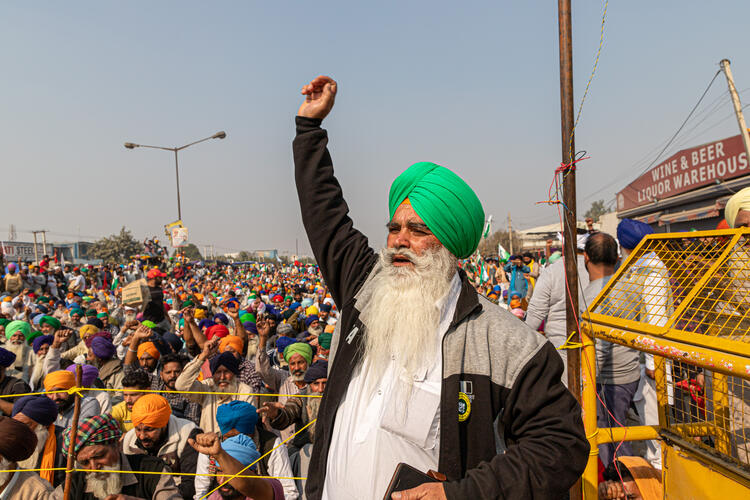
Thousands of Indian farmers are marching on Delhi demanding that the central government stick to promises they made three years ago
By
From Spain to Britain, farmers across Europe are angry about rising costs and taxes, competition from cheaper food imports, excessive red tape and environmental regulations that they say are making it increasingly hard to make a living. The anger has led to large protests, blocked roads and supermarket barricades.
But Europe isn’t the only place where farmers have had enough. On the edge of the Indian capital of Delhi, thousands of farmers are using their tractors to block road access to this city of 33 million (metropolitan area). In mid-February, the farmers, most of whom are from the agriculturally important states of the Punjab and Haryana, launched a ‘Delhi Chalo’ (Let’s go to Delhi) protest and climbing into their tractors and trucks they drove toward the capital.
Around 58 per cent of India’s 1.4 billion (2021 figures) people are primarily dependent on agriculture for their livelihood. But, in an echo of the words of European farmers, the economics of farming in India were leaving many farmers saddled in debt and flirting with bankruptcy.
This is not a new situation, and it’s not the first time that India’s farmers have attempted to barricade Delhi. Between August 2020 and December 2021 farmers spearheaded enormous protests that soon drew in other sectors of society. At its peak over 250 million workers downed tools in support of the farmers. The spark that that pushed farmers to take action in 2020 was the government’s introduction of three laws that eased the rules around sale, pricing and storage of farm produce, which farmer unions said would destroy livelihoods and leave farmers vulnerable to big companies.
After over a year of protests the Indian government finally backed down and agreed to abandon the most controversial aspects of the agricultural reforms. But, before the farmers turned their tractors around and started the slow drive home, they gave a warning that if the government didn’t fulfil their promises that the protests would resume.
Fast-forward to 2024, and farmers say that the government has not kept its earlier promises of a minimum price guarantee for their crops and so the tractors are rolling back towards Delhi. In addition to demanding that the government stick to its promises, farmers are also demanding pensions, that the government waive their debts and double the number of work days under the rural employment guarantee scheme. In addition to these demands, they also want India to withdraw from the World Trade Organisation (WTO) and scrap all free trade agreements, which they say are hurting Indian farming.
With elections due in India later this year, and farmers being a key voting bloc, the plight of farmers is likely to become a key election topic.
Related articles:




